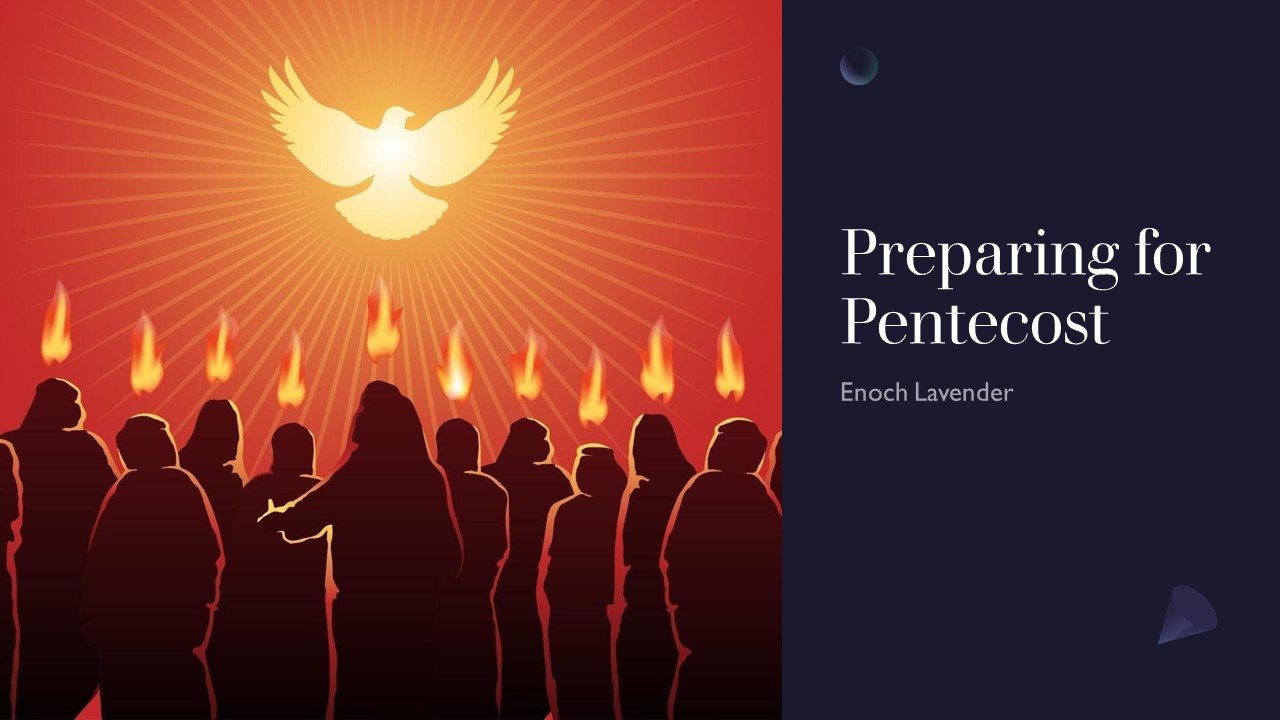Many Christians trace the beginning of the Church to the outpouring of the Holy Spirit on the Day of Pentecost in Acts chapter 2. However, few understand the significance of the Feast of Pentecost nor are they aware of the Jewish legends concerning an earlier Pentecost occurring almost 1500 years earlier.
Pentecost in the New Testament
“When the Day of Pentecost had fully come… ” Acts 2:1 NKJV
This is the very first mention of the ‘day of Pentecost’ in the New Testament, and it appears in the dramatic context of the Holy Spirit being poured out on the early believers. Given that the Feast of Pentecost had by this stage been around for close to 1500 years, the writer of Acts takes no to explain its context or significance. For the benefit of us modern readers, let us take a moment to review the origins of this feast.
The Divine Appointments
When God revealed Himself to Moses at Mt Sinai, He gave him a calendar of seven annual feasts for the Jewish people. These divinely ordained feasts are much more than mere cultural celebrations. The Hebrew word for feast (‘moed’) can best be translated as an ‘appointed time or season’, and a careful study of each of these ‘appointments’ reveals how they prophetically and sequentially foreshadow Jesus’ 1st and 2nd Comings. As they were performed year after year, it was as if they were prophetic dress rehearsals preparing God’s people for their future fulfilment. No wonder God calls them “my feasts” (Lev. 23:1-2).
Among these seven feasts, the Feast of Pentecost stands out as being the only feast that has no specific date given for it. Instead, the Israelites are commanded to literally count their way to this day from the Feast of First Fruits (Lev 23:15-16). They are to count 7 sabbaths, and then on the day after the last sabbath celebrate Pentecost. This rather unique aspect of the feast lead to it being given the name Pentecost (meaning ‘50’) in Greek and Shavuot (meaning ‘weeks’) in Hebrew.
The Timeline of Acts
Having watched Jesus ascend into heaven, the disciples were commanded to wait in Jerusalem ‘for the promise of the Holy Spirit’. The annual 50 day countdown to Pentecost was to take on new meaning this year as the disciples – as well as the entire nation – counted the days until this great outpouring.
As the days drew closer, we can imagine the disciples peering out the windows of the upper room where they gathered. Outside they could see and hear Jews from all over the world gathering in the city of Jerusalem for the upcoming feast (as commanded in Deut 16:16, also see Acts 2:5). The stage was truly being set for what was about to take place.
But before we go any further, we need to first examine the Jewish understanding and traditions surrounding the first Pentecost.
The First Pentecost
According to Jewish tradition, the very first Pentecost was when Israel received the Law of God at Mount Sinai (Exodus 19-20).
On that day, the Bible records how God Himself came down in fire, thunder and lightning on top of the mountain. At the base of Mt. Sinai stood the increasingly terrified congregation of Israel. Before their very eyes the entire mountain literally began to shake as smoke and fire covered its peaks. Then a loud trumpet began to sound and it kept blowing louder and louder. Next Moses lifted His voice to speak and from the mountain the Israelites heard God Himself answer in an audible voice. What an awesome sight this would have been!
Most English Bible versions translate Exodus 20:18 as the people seeing ‘the thunder and the lightning’. But the rabbis point out that in the Hebrew it literally says ‘they saw the voices and the torches’. How does one see a voice? Furthermore, the book of Deuteronomy repeatedly refers to God’s voice speaking to them at Mt. Sinai from ‘out of the fire’ (Deut. 4:15, 4:33, 5:24).
Basing itself on this unusual description of God’s voice being seen in the fire, one ancient Jewish legend asserts that God’s voice actually split into multiple sparks of fire which travelled around the camp coming to each Jew individually. Furthermore, it is believed that as God spoke the commandments, they went forth in all the world’s languages at once. (Shabbat 88b, Shemot Rabbah 5:9).
The Jewish traditions concerning this awe-inspiring encounter would have been familiar to Jesus’ disciples as well as their fellow first-century Jews. In an amazing parallel of that first Pentecost, the book of Acts records the events of this second great Pentecost. A sound came from heaven and the Holy Spirit personally came upon the disciples like individual flames of fire, resulting in the disciples supernaturally praising God in many foreign languages. No wonder the Jewish onlookers present were left completely stunned by what they were witnessing.
Rebellion vs Revival
We have seen the amazing parallels between the original Pentecost and the second Pentecost and how they both brought powerful supernatural manifestations of God. Yet, the greatest difference between the two events is found in their immediate aftermath. At Mt. Sinai, God’s people very quickly seemed to forget all that they had just seen and experienced and turned to worship a man-made idol. In the ensuing judgment, 3’000 men of Israel fell. This stands in sharp contrast to the book of Acts were Pentecost resulted in 3’000 men repenting and being baptised (Acts 2:41).
What went wrong at Mt. Sinai that went right in the Upper Room of Acts?
The key could well be found in the days leading up to the Feast of Pentecost. Just 50 days prior to the original Pentecost, the Israelite nation had been set free from slavery to Egypt. They had praised God jubilantly as they witnessed the final destruction of Pharoah’s armies at the Red Sea. Yet, only a few days later, their attitude of praise turned sour as bitter complaints rose about their lack of water and food. Rather than being a journey of praise and thanksgiving, the Israelites 50 day trek to Mt. Sinai became a tirade of persistent complaints against God and Moses.
By contrast, the disciples in the book of Acts used this same time period well by gathering daily in one accord to seek God. Perhaps the poor spiritual preparation of the ancient Israelites was why they fell at Mt Sinai, whereas the disciples by contrast were found ready for their encounter with God’s Spirit.
Are you waiting well?
Many Bible scholars believe the next event on God’s timetable is nothing less than the return of His Son. This is pre-figured in the next feast to be fulfilled on the calendar – the Feast of Trumpets.
As we look at the world around us, we can increasingly see signs telling us that His return is very near. Are we heading the message of these signs? Are we using our time well – like the disciples – getting ready for the next major event on God’s prophetic calendar? Or are we spending our time – like the ancient Israelites – consumed with the matters of life, complaining and murmuring?
Throughout his teaching ministry parables, Jesus repeated again and again the importance of being found ready at His coming – will we listen and learn the listen of the two Pentecosts?

Enoch Lavender was born in Australia, raised in Norway, spent time living in China and is now based in Melbourne, Australia. He has been studying Hebrew and the Jewish roots of our faith for the past decade, and has a keen interest in the Middle East from a Bible prophecy perspective.










0 Comments